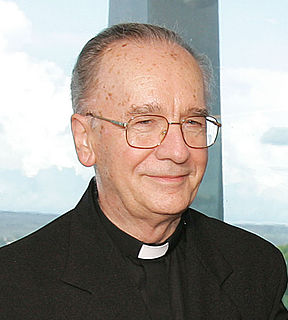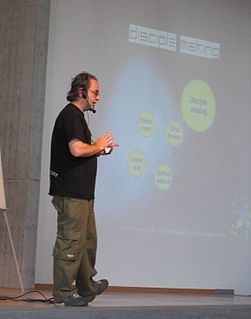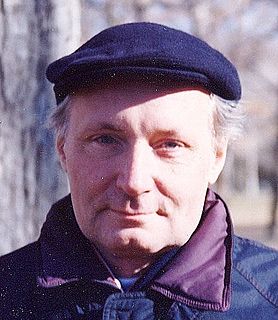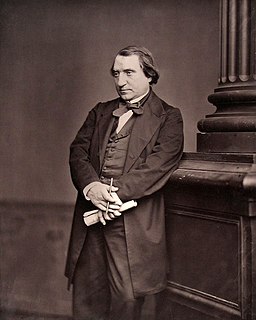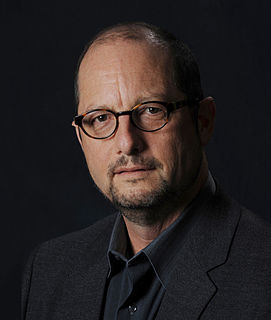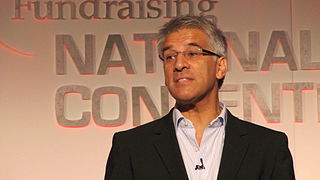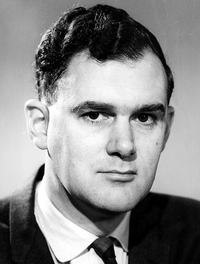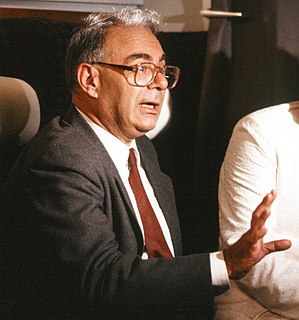Top 1200 Christian Theology Quotes & Sayings - Page 2
Explore popular Christian Theology quotes.
Last updated on April 20, 2025.
It's better to emphasize biblical theology, partly because there are fine Study Bibles already available that lean into systematic theology, and partly because biblical theology is particularly strong at helping readers see how the Bible hangs together in its own categories: that is, God in his infinite wisdom chose to give us his Word in the 66 canonical books, with all of their variations in theme, emphasis, vocabulary, literary form, and distinctive contributions across time.
Systematic theology will ask questions like "What are the attributes of God? What is sin? What does the cross achieve?" Biblical theology tends to ask questions such as "What is the theology of the prophecy of Isaiah? What do we learn from John's Gospel? How does the theme of the temple work itself out across the entire Bible?" Both approaches are legitimate; both are important. They are mutually complementary.
Often, when I want to read something that is satisfying to me as theology, what I actually read is string theory, or something like that - popularizations, inevitably, of scientific cosmologies - because their description of the scale of things and the intrinsic, astonishing character of reality coincides very beautifully with the most ambitious theology. It is thinking at that scale, and it is thinking that is invested with meaning in a humanly evocative form. That's theology.
A Christian boy or girl can learn mathematics, for example, from a teacher who is not a Christian; and truth is truth however learned. But while truth is truth however learned, the bearing of truth, the meaning of truth, the purpose of truth, even in the sphere of mathematics, seem entirely different to the Christian from that which they seem to the non-Christian; and that is why a truly Christian education is possible only when Christian conviction underlies not a part but all, of the curriculum of the school.
Theology asserts propositions that cannot be proven true; ideologues hold stoutly to a worldview despite being contradicted by what is generally accepted as reality. When ideology and theology couple, their offspring are not always bad but they are always blind. And there is the danger: voters and politicians alike, oblivious to the facts.
There are only two places where the powerful and great in this world lose their courage, tremble in the depths of their souls, and become truly afraid. These are the manger and the cross of Jesus Christ....No priest, no theologian stood at the cradle of Bethlehem. And yet, all Christian theology finds its beginnings in the miracle of miracles, that God became human.
You see, my Lord Archbishop, what is "dubious" about my theology is not that it contradicts particular doctrinal teachings, things are much worse or better: what I want, is no more and no less than a fundamental change in the whole way that theology is done today; but I want this out of faith, not out of faithlessness.
There is no possibility whatsoever of reconciling science and theology, at least in Christendom. Either Jesus arose from the dead or He didn't. If he did, then Christianity becomes plausible; if He did not, then it is sheer nonsense. I defy any genuine scientists to say that he believes in the Resurrection, or indeed in any other cardinal dogma of the Christian system.
There is however difference between the theology of liberation and traditional theology, the latter being based primarily On the Word of God made incarnate in the Holy Scripture Liberation theology is of course also inspired by the Word, but its representatives are convinced that God also speaks to us in everyday events and that, for example, information obtained through the mass media can be a special way in which God speaks to us.
When you've got African parents, you go to uni, do finance, and go into accounting. But I'm not good with systems. I dropped out in my final year of college to become a Christian poet. Then went back to do my A-levels and went to uni in Birmingham to do political science and theology. I lasted 12 weeks.
Who should listen to discussions of theology? Those for whom it is a serious undertaking, not just another subject like any other for entertaining small-talk, after the races, the theater, songs, food, and sex: for there are people who count chatter on theology and clever deployment of arguments as one of their amusements.
In The Lost Message of Jesus I claim that penal substitution is tantamount to 'child abuse - a vengeful Father punishing his Son for an offence he has not even committed.' Though the sheer bluntness of this imagery (not original to me of course) might shock some, in truth, it is only a stark 'unmasking' of the violent, pre-Christian thinking behind such a theology.
the seeker who embraces positive theology finds ... that you can have all that stuff in the mall, as well as the beautiful house and car, if only you believe that you can. But ... if you don't have all that you want, if you feel sick, discouraged, or defeated, you have only yourself to blame. Positive theology ratifies and completes a world without beauty, transcendence, or mercy.
When you say Yes to God unconditionally, you have no idea how far this Yes is going to take you. Certainly farther than you can guess and calculate beforehand... but just how far and in what form? At the same time, this Yes is the sole, non-negotiable prerequisite of all Christian understanding, of all theology and ecclesial wisdom.
Aristotle especially, both by speculation and observation... reached something like the modern idea of a succession of higher organizations from lower, and made the fruitful suggestion of "a perfecting principle" in Nature. With the coming in of Christian theology this tendency toward a yet truer theory of evolution was mainly stopped, but the old crude view remained.
I hope and believe my co-religionists understand and admit that I disclaim their theology in toto, and that by no twisting of language or darkening of its meanings can I be made to have any thing whatever in common with them about religious matters... they must take my word for it that there is nothing in common between their theology and my philosophy.
Christian theology provides some of the best arguments for respecting animal life and for taking seriously animals as partners with us within God's creation. It may be ironical that this tradition, once thought of as the bastion of human moral exclusivity, should now be seen as the seed-bed for a creative understanding of animal liberation.
We are left with the feeling that the church has overdone it, no matter how you cut it, and that homosexuals have certainly suffered more wrong than they have committed, and that there must be flaws in whatever theology of nature or hierarchy of sins has made homosexuality be viewed as the nadir of depravity... This feeling increases when one becomes acquainted with responsible, Christian, homosexual people.














